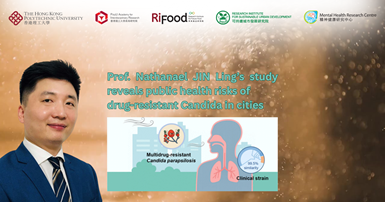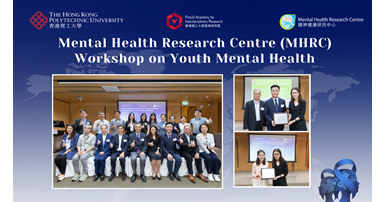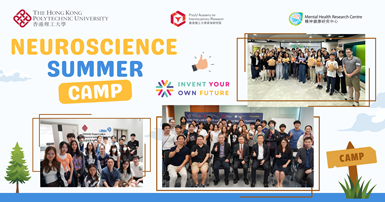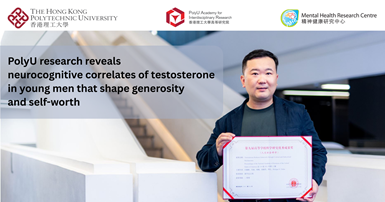
Advancing Neuroscience: The 1st Human Brain Mapping Symposium in the Greater Bay Area
18 Nov, 2025
Scholarly Engagement

Single session of exercise rapidly alleviates depressive mood: Hong Kong Polytechnic University study reveals neural mechanism and preventative potential
4 Nov, 2025
Research

MHRC receives donation from the Lux Academy Hong Kong Investment Limited to develop occupational therapy service for mental hospitals in mainland China
15 Oct, 2025
Funding & Donations

Prof. Nathanael JIN Ling’s study reveals public health risks of drug-resistant Candida in cities
1 Oct, 2025
Research

MHRC organises workshop on youth mental health
9 Sep, 2025
Scholarly Engagement

MHRC co-organises neuroscience summer camp
1 Sep, 2025
Scholarly Engagement

Two PolyU education research projects awarded under Theme-based Exercise of Public Policy Research Funding Scheme
20 Aug, 2025
Funding & Donations

PolyU research reveals neurocognitive correlates of testosterone in young men that shape generosity and self-worth
4 Aug, 2025
Research

Prof. Sylvia CHEN receives JESSICA Most Successful Women Award
7 Jul, 2025
Awards & Recognitions

DoMHRC Elected Council Chair of the Organisation for Human Brain Mapping and Keynotes at Conference
4 Jul, 2025
Awards & Recognitions


